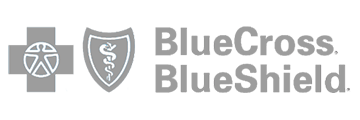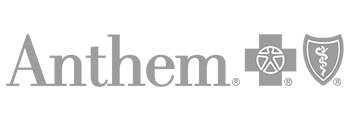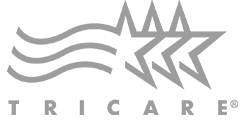Anxiety and Addiction Treatment
When anxiety feels overwhelming, drugs or alcohol can seem like the only relief. But temporary escape becomes a trap when substance use creates new problems while the anxiety remains. At Southeast Addiction Center, we treat both conditions together because they’re so often connected. Our co-occurring disorder programs help you develop real coping strategies for anxiety without needing substances. You don’t have to choose between managing one or the other — our effective treatment in Georgia helps you address both.
Key points
- Southeast Addiction Center in Georgia treats anxiety disorders and substance use together through co-occurring disorder programs rather than addressing each condition separately.
- Nearly 19 percent of adults in the US experience anxiety disorders annually, with many also struggling with alcohol or drug use as self-medication.
- The center offers multiple treatment levels, ranging from residential care to outpatient programs, as well as specialized services such as family support and veterans’ treatment.
- Treatment focuses on breaking the cycle where substance use temporarily relieves anxiety but ultimately makes both conditions worse over time.
Our Services
Anxiety Disorders and Addiction

Living with anxiety disorders like panic attacks or social anxiety is exhausting.[1] When drugs or alcohol seem to quiet the racing thoughts or calm the physical symptoms, it makes sense that people reach for them. But using substances to manage anxiety creates a new set of problems while the original anxiety remains untreated.
Substance use actually makes anxiety worse over time.[2] Your brain gets used to the temporary relief, so you need more to feel the same effect. When substances wear off, anxiety often comes back stronger. Plus, dealing with the consequences of addiction—money stress, relationship problems, health issues—adds even more anxiety to your life.
Many people think they need to get sober first, then deal with their anxiety later. Or they believe that if they just fix their anxiety, the substance use will stop on its own. Neither approach works well because these conditions are so intertwined. Treating only one leaves you vulnerable to relapse or continued anxiety struggles.
You don’t have to pick between managing anxiety and addressing addiction. Both need attention at the same time. At Southeast Addiction, we help you understand how these conditions affect each other and teach practical skills for handling anxiety without substances. You’ll work with therapists who understand your needs and learn techniques that actually work in the long term.
How Can Anxiety Lead to Substance Use?
Anxiety creates a powerful drive toward immediate relief, and substances often provide that quick escape. When someone experiences the racing thoughts, physical tension, and overwhelming worry that characterize anxiety disorders, alcohol or drugs can seem like an instant solution. The temporary calm that substances provide feels like a lifeline during panic attacks or periods of intense stress.
Seeking relief from drug and alcohol use can feel appealing because anxiety symptoms are often unpredictable. People discover that a drink or pill can quiet their mind within minutes, offering a stark contrast to the weeks or months that holistic therapy for anxiety and proper medication might take to show results. The brain quickly learns to associate substances with relief, creating a mental pathway that strengthens each time someone reaches for their substance of choice during anxious moments.[3]
Recognizing the warning signs when anxiety starts driving substance use allows for prompt treatment before dependency develops. Family members and friends can play a crucial role in identifying these patterns and encouraging professional help. Treatment is always more effective when started early, before years of substance use have created additional physical and psychological complications.
How Common Are Anxiety Disorders?
You’re not alone in struggling with anxiety. Nearly one in five adults in the nation — about 19 percent —experience an anxiety disorder each year, according to the National Institute of Mental Health.[4] That’s millions of people dealing with persistent worry, panic attacks, social fears, or trauma-related anxiety. Many people with anxiety disorders also struggle with alcohol or drug use, making co-occurring treatment an important part of the recovery process.
What Are the Different Kinds of Anxiety Disorders?
Anxiety shows up differently for different people. Understanding which type you’re dealing with can help you get the right treatment:[5]
- Generalized Anxiety Disorder: Persistent worry about everyday situations that feels impossible to control.
- Panic Disorder: Sudden, intense episodes of fear with physical symptoms like a racing heart or difficulty breathing.
- Social Anxiety Disorder: Overwhelming fear of being judged or embarrassed in social situations.
- Specific Phobias: Intense fear of particular objects, situations, or activities that disrupts daily life.
- Post-Traumatic Stress Disorder (PTSD): Anxiety, flashbacks, and avoidance following a traumatic experience. Although not specifically an anxiety-based disorder, anxiety and anxiety-like symptoms are often prevalent.
- Obsessive-Compulsive Disorder (OCD): Unwanted thoughts that lead to repetitive behaviors or mental rituals. Like PTSD, OCD is not specifically an anxiety-based disorder, but can often result in anxiety or co-occurring anxiety.
What Types of Treatment Are There For Anxiety Disorders and Drug/Alcohol Use?
Effective treatment for co-occurring disorders requires a comprehensive approach that addresses both your anxiety disorder and substance use disorder at the same time. The best treatment programs offer multiple levels of care, allowing you to progress gradually as you develop stronger coping skills. Rather than using drugs or alcohol as a coping mechanism for symptoms of anxiety, you’ll learn evidence-based strategies that break the vicious cycle of self-medication and support your long-term well-being.
- Residential Treatment: 24-hour inpatient care for severe dual diagnosis cases, providing medical detox and intensive therapy for conditions like generalized anxiety disorder, panic disorder, or PTSD alongside substance abuse.
- Partial Hospitalization: Structured daily treatment that lets you return home each night while receiving comprehensive care for mental health conditions and addiction, including CBT, medication management, and DBT for anxiety.
- Intensive Outpatient Program (IOP): Flexible treatment option that fits around work or family obligations, focusing on relapse prevention and managing anxiety symptoms without substances in daily life.
- Outpatient Treatment Program (OP): Ongoing support for maintaining recovery from alcohol use disorder or drug addiction while managing anxiety through individual therapy, coping skills development, and 12-step support for anxiety.
- Medication-Assisted Treatment: Professional healthcare oversight for prescription medications that safely manage withdrawal symptoms, anxiety, and cravings without risk of dependence on benzodiazepines or other substances.
- Relapse Prevention: Evidence-based strategies to identify triggers, manage panic attacks, and handle social situations without turning to alcohol or drugs as your primary coping mechanism.
- Family Program: Support for your loved ones to understand mental health issues, learn healthy communication, and create a supportive environment for your recovery journey.
- Alumni Program: Ongoing connection with others in recovery, providing peer support groups and accountability as you navigate long-term sobriety and mental wellness.
- Support for Veterans: Tailored treatment recognizing the unique risk factors veterans face, including comorbid PTSD, anxiety, and substance use, with an understanding of military culture and combat-related trauma.
Frequently Asked Questions About Anxiety and Addiction Treatment in Georgia
Can I get treatment for both substance abuse and anxiety at the same time?
Yes, treating both conditions simultaneously is actually the most effective approach. Many people with anxiety disorders use alcohol or drugs as self-medication, creating a cycle where each condition makes the other worse. Co-occurring disorder treatment addresses your anxiety and substance use together, helping you develop healthy coping strategies instead of relying on substances to manage symptoms of anxiety.
What if my anxiety gets worse when I stop using drugs or alcohol?
It’s common for anxiety symptoms to feel more intense during early recovery as your brain adjusts to functioning without substances. This temporary increase doesn’t mean treatment isn’t working. Our treatment programs include medication management, Cognitive-Behavioral Therapy, and other evidence-based approaches to help you manage withdrawal symptoms and anxiety safely while your body heals.
Do I need inpatient treatment, or can I do outpatient for anxiety and addiction?
The right level of care depends on the severity of both conditions and your personal situation. Many people with anxiety disorders and substance use successfully recover through intensive outpatient programs that allow them to maintain work and family responsibilities.
Our clinical team evaluates factors like your mental health history, substance use patterns, and support system to recommend the most appropriate treatment plan.
Will my insurance cover dual diagnosis treatment in Georgia?
Most commercial insurance plans cover treatment for co-occurring disorders. Southeast Addiction accepts major insurance providers, including Blue Cross, TRICARE, and Alliant Health Plans. Rather than trying to navigate insurance coverage on your own, call us for a free benefits verification. We’ll review your specific coverage and explain your treatment options, allowing you to focus on getting the help you need.
How long does treatment for anxiety and addiction take?
Treatment length varies based on your individual needs, but most people benefit from 30 to 90 days of structured programming. Some clients stay longer if they’re dealing with severe anxiety disorders like PTSD or have experienced multiple relapses. The ultimate goal is to give you enough time to develop solid coping skills for managing both anxiety and cravings.
Our programs are flexible — you may start in partial hospitalization and step down to intensive outpatient treatment, then transition to regular outpatient care as you progress. Recovery is a journey, not a race.
Sources
[1] Cleveland Clinic. (2024, July 3). Anxiety Disorders. Cleveland Clinic. https://my.clevelandclinic.org/health/diseases/9536-anxiety-disorders on July 24, 2025
[2] Back, S. E., & Brady, K. T. (2008). Anxiety Disorders with Comorbid Substance Use Disorders: Diagnostic and Treatment Considerations. Psychiatric Annals, 38(11), 724–729. https://pmc.ncbi.nlm.nih.gov/articles/PMC2921723/ on July 24, 2025
[3] Brady, K. T., Haynes, L. F., Hartwell, K. J., & Killeen, T. K. (2013). Substance Use Disorders and Anxiety: A Treatment Challenge for Social Workers. Social Work in Public Health, 28(3-4), 407–423. https://pmc.ncbi.nlm.nih.gov/articles/PMC3775646/ on July 24, 2025
[4] National Institute of Mental Health. (2024). Any Anxiety Disorder. Www.nimh.nih.gov; National Institute of Mental Health. https://www.nimh.nih.gov/health/statistics/any-anxiety-disorder on July 24, 2025
[5] American Psychiatric Association. (2023). What Are Anxiety Disorders? American Psychiatry Association. https://www.psychiatry.org/patients-families/anxiety-disorders/what-are-anxiety-disorders on July 24, 2025
Get the help you need now
We are Here for you.
If you or a loved one need help, we are available to guide you through every step of your recovery. Call us today and speak with a recovery counselor to get started.








